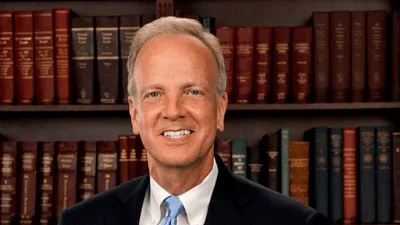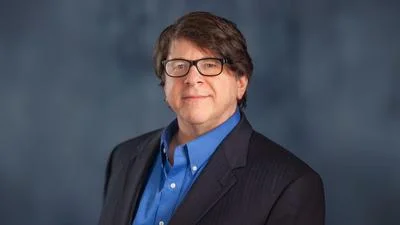Stock photo
Stock photo
Olathe attorney Ryan Kriegshauser told Sunflower State News that when governments decide what businesses can stay open and which ones must close, there are serious questions about the decision-making process — questions that extend far beyond the borders of Kansas.
“This is a national issue because the ‘essential vs. non-essential’ framework is national in nature and ultimately comes from Cybersecurity and Infrastructure Security Agency (CISA) guidelines at the Department of Homeland Security,” said Kriegshauser, principal at Kriegshauser Law, LLC. “Accordingly, this distinction is being used nationally. As of Aug. 17, numerous states still have restrictions in place, most of them relying on essential vs. non-essential-type distinctions.”
Depending on how the shutdowns legally operate in other states, the same breakdowns in due process likely exist across the country, Kriegshauser says.

Ryan Kriegshauser
| LinkedIn
“Bureaucrats at health agencies likely have inordinate amounts of power to make decisions and interpret orders without due process,” he said. “The issues experienced in Kansas are likely merely a microcosm of what is occurring nationally. Absolutely there is concern that these issues will arise again. [Kansas] Gov. [Laura] Kelly has said certain businesses may need to be shut down again.”
With the threat of a second wave looming, Kriegshauser says there is a possibility that the Kansas Essential Function Framework (KEFF) could be applied again. The KEFF was part of an executive order issued on March 24 that focuses on four functional areas — connect, distribute, manage and supply. Local government entities distributed the framework to businesses and organizations that were allowed to request an exemption.
Kriegshauser says that local jurisdictions have issued orders or have orders in place using aspects of the essential vs. non-essential framework by placing additional restrictions on certain types without regard to the guidelines and safety protocols they put in place. He sent an email to the Hometown Girard local newspaper to show the inequity in the process to decide what businesses are allowed to remain open.
“Based on our KORA (Kansas Open Records Act) requests, I would note that in Girard three businesses applied to the KEFF team for an ‘essential designation,’” the email stated. “One dentist, which was approved. One business that sells ‘handmade cloth face masks, food mixes, soap and other necessities,’ which was also approved. The store’s page states that it sells ‘decor, gifts, vendor booths, handcrafted items, consignment pieces, & more.’ This is interesting given that most craft and gift stores were shut down.
“Further, an office furniture store applied and was denied an ‘essential’ designation, which is also interesting because some furniture stores were in operation if they sold items for home offices or other offices that were categorized as essential,” the email continued. “It is unclear why this particular office furniture store was denied an ‘essential’ designation. These local Girard businesses highlight the inconsistency and arbitrary nature of the KEFF team’s decision-making. Additionally, based on the information the Trust Kansas Coalition has received, due process was lacking in the KEFF process as described in Majority Leader [Jim Denning's] op-ed.”
Businesses in Kansas have options, depending on how a government shutdown operates legally, Kriegshauser said.
“Kansas recently made legislative changes to the Kansas Emergency Management Act to provide additional options to businesses,” he told the Sunflower State News. “If Gov. Kelly issues another shutdown, businesses can first talk to the legislative members of the State Finance Counsel because a majority of them are needed to ratify a prolonged business shutdown. Additionally, Gov. Kelly’s shutdown orders can be overruled by local county commissions, so businesses should talk to their county commissioners. If business shutdowns are issued by the county, businesses may have the right to a judicial hearing within 72 hours, depending on how the shutdown is structured. Broad ‘stay-home’ orders are more likely to trigger access to this option.”
Kriegshauser says that businesses in other states should investigate what powers elected officials have to address a looming business shutdown order and work with counsel to see if they can repurpose their business to meet an essential function and remain open similar to other essential businesses.
“In Kansas, we created the Trust Kansas Coalition, a group of business and liberty-minded organizations that worked with counsel to research issues with the execution of Gov. Kelly’s Kansas Essential Functions Framework and to educate the public about due-process problems that were uncovered,” he said. “Businesses in other states should work together to take a hard look at how business restrictions operate and see what can be done to increase due process in this type of situation. Businesses should work with their elected representatives to put due process procedures in place when business shutdowns occur.”




 Alerts Sign-up
Alerts Sign-up